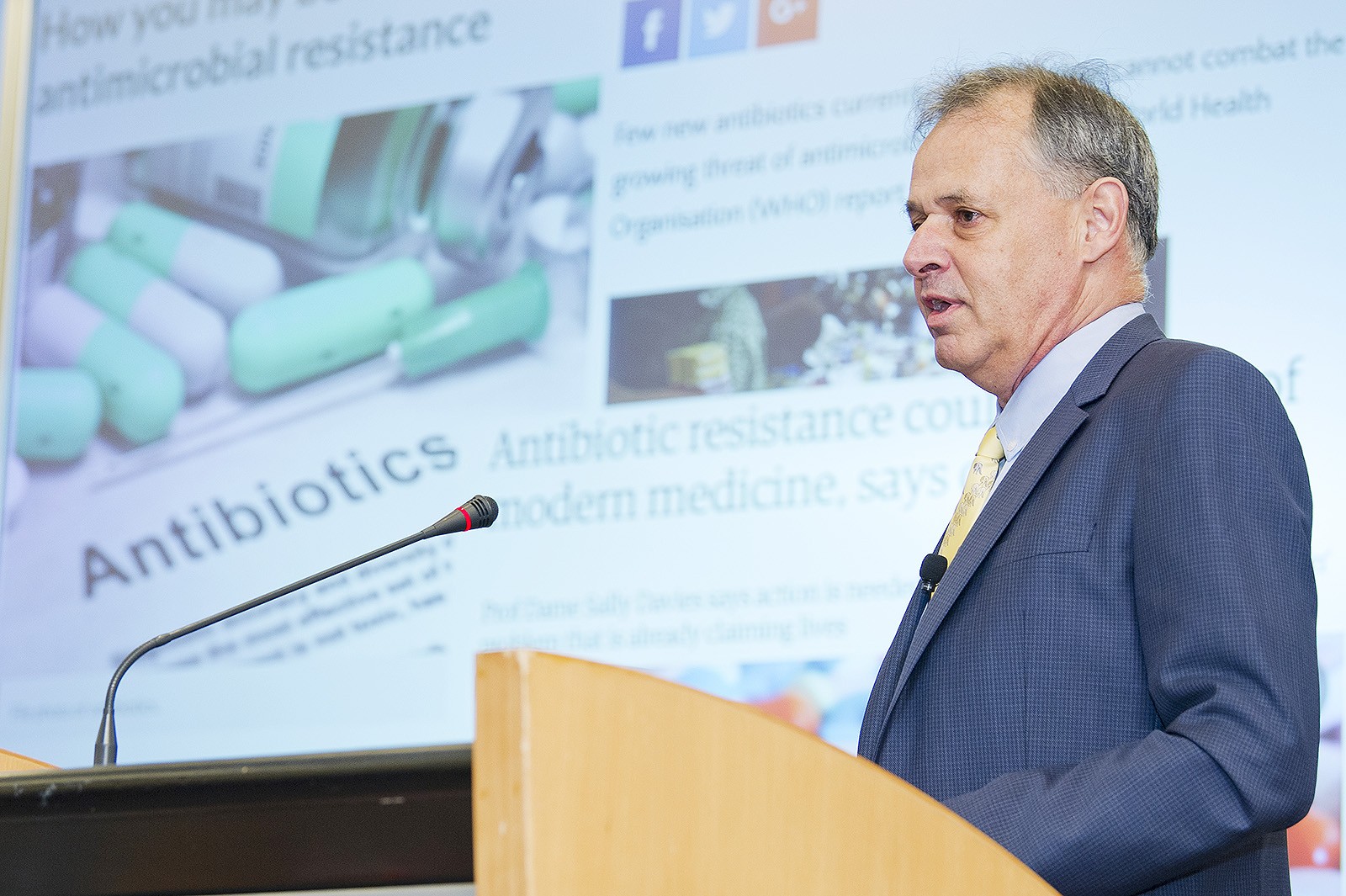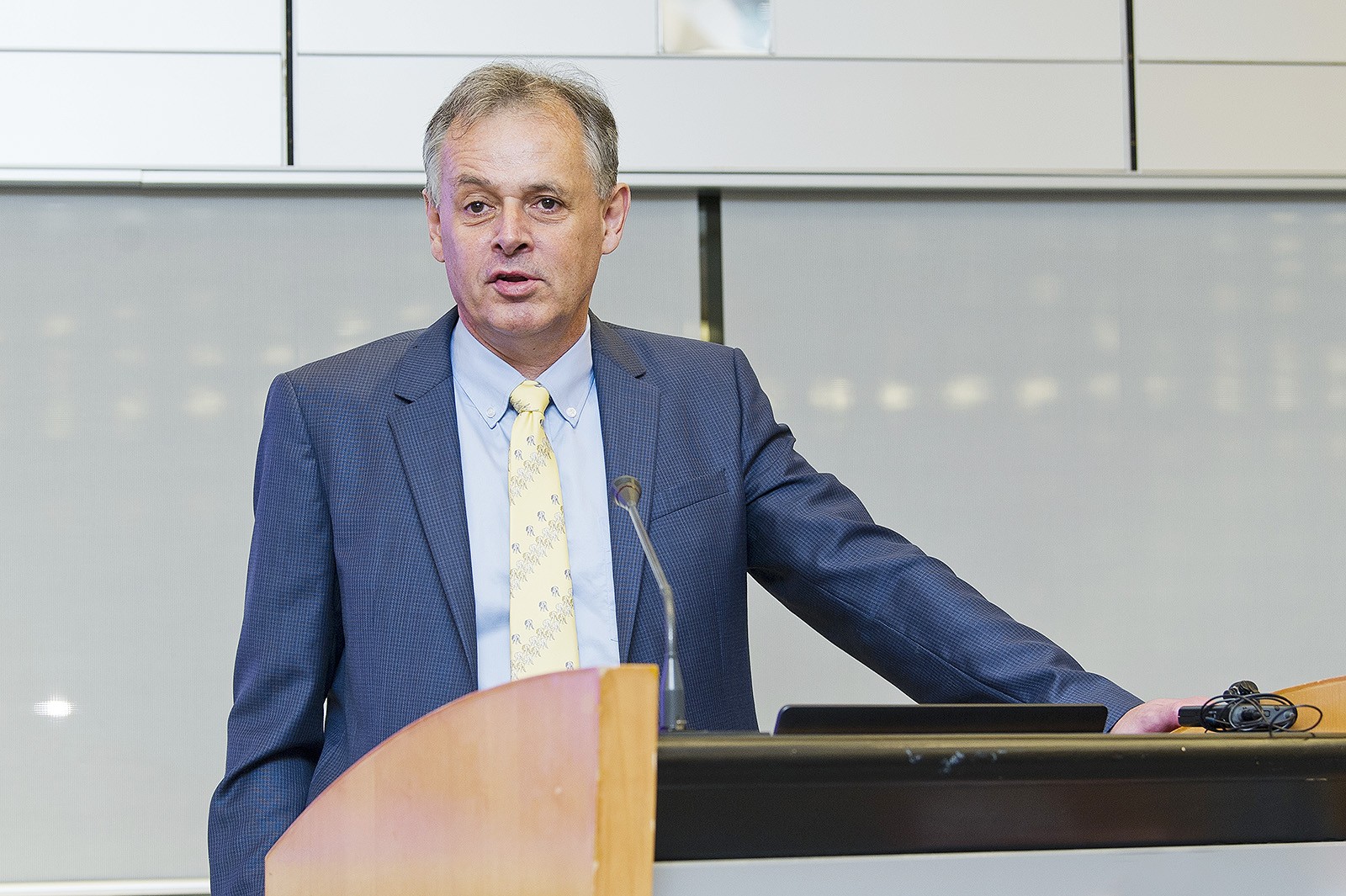Who’s to blame for the antibiotics crisis?
Michael Gibb
We think of antibiotic-resistant infections as a new phenomenon, but in fact it’s never been a secret that overuse of drugs such as penicillin could lead to problems, according to Professor Michael Reichel at the President's Lecture Series: Excellence in Academia on 23 November at City University of Hong Kong (CityU).
In his talk, “Don't just blame the animals, but who is to blame?”, the Dean and Chair Professor at the College of Veterinary Medicine and Life Sciences (CVMLS) pointed out that Alexander Fleming, the Scottish scientist who discovered penicillin in September 1928, had issued such a warning in his 1945 Nobel Prize acceptance speech.
“The time may come when penicillin can be bought by anyone in the shops. Then there is the danger that the ignorant man may easily underdose himself and by exposing his microbes to non-lethal quantities of the drug make them resistant,” Fleming had foretold.
Today the problem is that antibiotics usage is on the increase, not uniformly around the globe, but in several countries, activity that is thought to have given rise to strengthening resistance to drugs such as colistin, one of the so-called antibiotics of last resort, Professor Reichel said.
“Antimicrobial resistance, or AMR, is a major threat to global health and the world economy,” he argued, presenting data that suggested that AMR could be responsible for the loss of 10 million lives, particularly in Africa and Asia, by 2050.
Particularly worrying is that several bacteria found in Hong Kong have become steadily more and more resistant to specific drugs used to fight off relatively common infections. For example, the levels of resistance of E.Coli found in Hong Kong to drugs such as 3rd generation cephalosporins and fluoroquinolones, and of Staphylococcus aureus to methicillin, are among the highest in the world.
One Health, a global health paradigm that is especially supported by CityU and CVMLS, is relevant here because humans, animals and the environment are so closely interconnected. The totality of microorganisms and their collective genetic material present in or on the human body or in another environment does not differentiate between us and other creatures, while the ecosystem around us provides pathways for the resistance to travel through.
One initiative was to reduce antibiotic use in farming, the Dean suggested. Belgium, the Netherlands and the UK have reported some success in doing so, and finding that the impact on production is insignificant.
Professor Reichel also said effort should be made in only giving antibiotics to animals under veterinary supervision; not using antibiotics for growth promotion or to prevent diseases in healthy animal; vaccinating animals to reduce the need for antibiotics and using alternatives to antibiotics when available; promoting and applying good practices at all steps of production and processing of foods from animal and plant sources; and improve biosecurity on farms and prevent infections through improved hygiene and animal welfare.
“Washing hands, not eating raw food, keeping our own vaccinations up to date, as well as greater government regulation and investment in research and development of new antibiotics, vaccines, diagnostics and other tools will also help,” he added.
Of course, it went without saying, that antibiotics had to be prescribed, distributed and used responsibly, he said.
The speaker even suggested that withdrawing banknotes from circulation might be a useful plan of action since Hong Kong bills are thought to have a higher abundance of potentially pathogenic species. The idea seemed far-fetched, but in the context of the talk, perhaps not as unreasonable as one might think at first.
Whether or not a cashless society was feasible, many in the audience no doubt left the venue after Professor Reichel’s talk wondering why greater attention hadn’t been paid to Alexander Fleming’s grim warnings more than 70 years ago.

